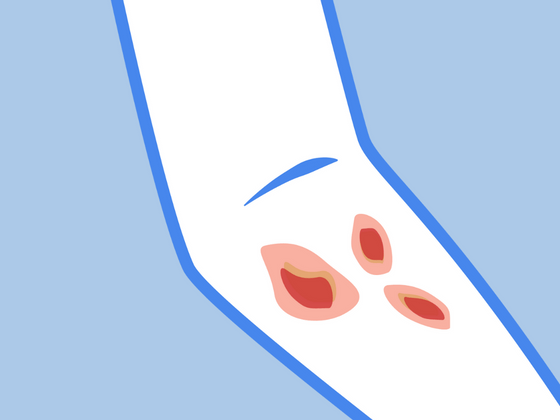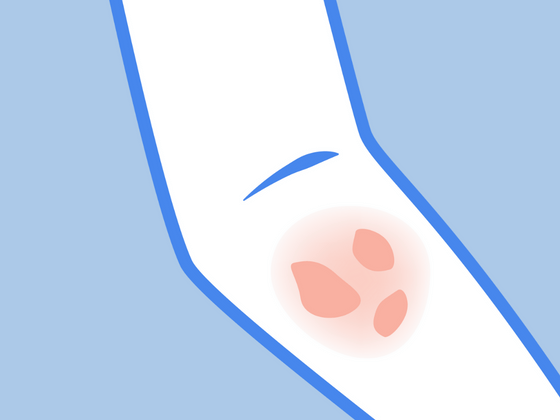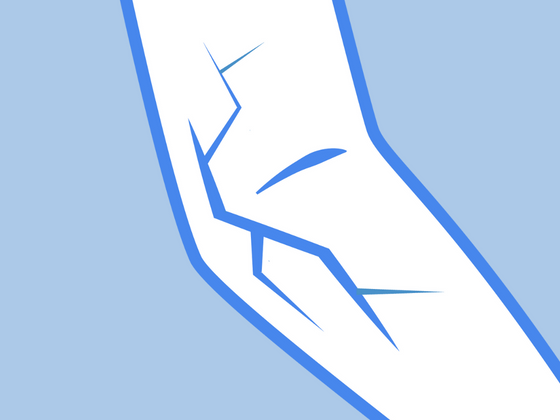Lip licker’s dermatitis, also known as lip licking eczema, is a condition that causes dry, red skin around the mouth. It's caused by excessively licking your lips and the area surrounding your mouth, which can leave you with itchiness and pain.
In this article you’ll find out everything you need to know about what lip licker’s dermatitis is and how to combat it, including:
- Factors that contribute to lip licking eczema
- Lip licking dermatitis treatment
- Prevention for lip licker’s dermatitis
Keep reading to find natural treatment for lip licker’s dermatitis to get rid of that painful itchiness for good.
What is Lip Licker’s Dermatitis?
Lip licking dermatitis is a reaction of the lips and the skin around the mouth to saliva caused by excessively licking the lips. This results in chapped and inflamed cracking of the skin and lips. It is common in children, although it can happen at any age. The constant lip-licking disrupts the skin's normal skin barrier function and causes inflammation, which can prompt further lip-licking, perpetuating painful symptoms.
Contributing Factors to Lip Licking Eczema
There a few factors that contribute to this condition such as:
- Dry Lips: If your lips are dry or chapped, it may tempt you to find relief by wetting your lips
- Cold, dry weather: Cold, dry weather often causes chapped lips. Because of this, lip lickers dermatitis is common in winter months.
- Irritants: Artificial fragrances in soaps, detergents and perfumes can cause reactions and increase sensitivity
How to Treat Lip Licking Dermatitis
Emollient Lip Balms:
Emollients are butters, oils or fatty acids that are used to moisturize or soothe the skin. They work by creating a protective layer on the skin that traps in moisture. They are extremely beneficial in treating eczema because they soothe the skin while replenishing moisture. We suggest Organic Calendula Lip Balm. It's made with two powerful emollients, beeswax and vitamin E, as well as calendula, to relieve irritation.
Exfoliation:
Exfoliating is very important for eczema. It helps to remove dead skin that can cause itchiness and discomfort. Gently exfoliating your lips and the area around it can be beneficial in combating itchiness if you are struggling with lip licking eczema.
Prevention for Lip Licker’s Dermatitis
Since it is a reaction to saliva, the main way to prevent lip licker’s dermatitis is to stop licking your lips. However, the urge to lick your lips is typically a result of dry lips, so to avoid dry lips there are a few things you can try:
Protect Your Skin in Cold Weather
Cold temperatures and low humidity causes dry air that draws moisture away from the skin. This can cause dry, chapped lips, creating that uncomfortable feeling and causing you to lick your lips. You can protect your lips from the dry, cold air by covering them with a scarf or face mask.
Make sure that you are not using harsh materials that can further irritate your sensitive skin and lips. This Remedywear Reusable Face Mask, available for both adults and kids, is made with eczema friendly fabrics and antimicrobial zinc to prevent bacteria growth.
Stay Hydrated
If you’re prone to eczema, dry skin can easily become irritated and break out into dry, itchy patches. To prevent dry skin, staying hydrated is key. Not only does the water you drink work to hydrate skin cells, it is also a key part in keeping your body and immune system healthy, which is essential in repairing a compromised skin barrier. You can also use a humidifier to bring moisture into the air to prevent skin from drying up.
Avoid Harsh Chemicals and Fragrances
When dealing with eczema it is important to use gentle products so that you don't irritate already sensitive skin. Using harsh chemicals can further the problem, drying out lips even more and causing pain and uncomfortableness.
Get Started on Your Lip Healing Journey Today
We hope you found these simple and effective tips helpful to heal your dermatitis naturally and prevent your lips from drying out.








